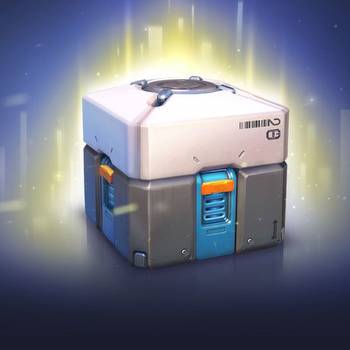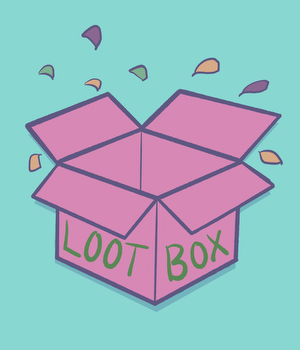Growing concern over link between video game loot boxes and problem gambling

Children buying loot boxes in video games “is setting up a relationship with gambling their brain isn’t ready for”, after a new study found a link between the purchasing of such loot boxes with gambling problems in adolescents.
Introduced in video games in the last decade, a loot box is where a player can purchase an item in the game for real money that has a randomised chance of them getting a desirable item that can boost their chances of winning.
In the popular FIFA football video games, for example, players in the Ultimate Team mode compete against each other and try to build the best teams. Like trading cards, different football players can be found in “packs”.
You can acquire these packs by playing the game and earning in-game currency. But you can also buy them using actual money. In these packs, there is often only a very small chance of acquiring some of the most popular players like Messi, Ronaldo and Mbappe.
Such loot boxes have also been seen in other popular games such as Fortnite and Overwatch. This latest research was conducted in Australia, and funded by the New South Wales Government’s Responsible Gambling Fund.
The study said: “When controlling for monetary gambling, age and gender, recent loot box purchasing increased the odds of problem gambling 3.7 to 6.0 times, and at-risk gambling 2.8 to 4.3 times.”
Researchers said their results indicated that loot boxes “disproportionately attract adolescents experiencing gambling problems, adding to the financial stress caused by gambling”.
“The main finding, that loot box purchasing independently predicts problem gambling and at-risk gambling amongst young people, supports the need for consumer protection tools in games with loot boxes,” the study said.
It said that something “noticeably absent from these games” is the harm minimisation measures provided for online gambling such as limit-setting options, clear information about the odds of winning and self-exclusion options.
It also said the link it found between loot boxes and online gambling supports calls to restrict the purchasing of these games to those of legal gambling age. Barry Grant, CEO of Extern Problem Gambling in Ireland, said it’s “worrying that these things are put in front of children in the first place”.
“This study shows there’s an overlap there with young people who meet the criteria for problem gambling with spending on loot boxes,” he said. “We’d definitely want to see loot boxes coming under the jurisdiction of the new gambling regulator.”
In a recent Seanad debate on proposed gambling reforms, with the new gambling regulator to be up and running next year, Green Party Senator Pauline O’Reilly singled out the impact of loot boxes.
“They have muddied the distinction because they are mystery boxes which can sometimes be purchased with real money and the value of their contents involves chance or luck, which is ultimately gambling,” she said.
“There was a report that showed that 40% of children open these loot boxes.
That is 40% of people choosing to gamble in the middle of something that is a game and meant to be fun. They do not identify it with that, but it starts them on the path. That is very dangerous.
The minister in charge of spearheading efforts at gambling reform is Junior Justice Minister James Browne. On loot boxes, he said that “we have to be aware that society is changing rapidly”.
“We all remember the hullabaloo 12 years ago about a physical casino being set up in Tipperary and how that might impact and promote gambling,” he said. “Now every 12-year-old is going around with a casino in their back pocket. That is the reality of it."
Mr Browne said that the Government will take “as comprehensive an approach as possible” to regulating gambling in Ireland and measures would be “future-proofed” so they can adapt to changing circumstances.

































